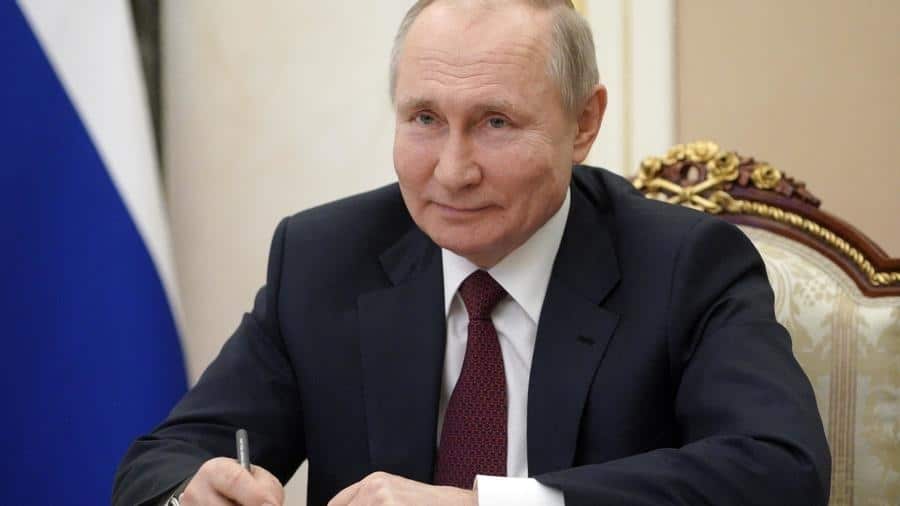Russian President Vladimir Putin at a meeting on March 18, 2021.
On Monday April 5th, Vladimir Putin signed various constitutional reforms into law. The amendments include a prohibition of marriage equality, as well as the possibility of two more terms for Russia’s leader.
On Monday 5th of April, Russian President Vladimir Putin (68) officially signed further constitutional amendments into law. The reforms allow Putin to hold office for two additional six-year terms, opening the possibility for him to stay in power until 2036. Putin said he would decide whether to run again in 2024, when his current six-year term ends.
The Russian leader has already been in power for more than two decades, longer than any other Kremlin leader since Soviet dictator Josef Stalin. Putin was first elected president in 2000 and served two consecutive four-year terms.
He has argued that resetting the term count was necessary to keep his lieutenants focused on their work instead of “darting their eyes in search for possible successors”.
July 2020 referendum
The law is part of a package of constitutional changes that had been approved in a referendum in July 2020 by 77.9% of Russian voters, according to the Russia Electoral Commission.
The opposition has criticised the July constitutional vote, arguing that it was tarnished by widespread reports of pressure on voters and other irregularities, as well as a lack of transparency and hurdles hindering independent monitoring.
The same package of constitutional amendments also grants former presidents of Russia lifetime immunity once they leave office. In the previous legislation, former presidents are only immune from prosecution for crimes committed while in office. Under the new legislation, former presidents and their families cannot be prosecuted for crimes committed during their lifetime. Besides that, they will also be exempt from searches, arrests or questionings. Putin already signed this amendment into law in December 2020.
The new constitutional amendments also emphasise the primacy of Russian law over international norms and international agreements.
Kremlin opponents have said the constitutional reforms are a pretext to allow Putin to become “president for life”. The amendments have further solidified the power and influence of Putin, making him almost indispensable.
Prohibition of marriage equality
A ban on marriage equality – defining marriage as exclusive “between a man and a woman” – is also part of the package of constitutional reforms that Putin signed on Monday. Same-sex marriage was already illegal in Russia, but by solidifying the definition of marriage in the constitution, it has become even harder for marriage equality to ever become a reality in the country.
This latest attack on the LGBTI community is no surprise in Putin’s Russia, where the LGBTI community faces frequent violence and discrimination, and where Putin’s government has instituted a notorious “gay propaganda”-ban, prohibiting the distribution of anything viewed as vaguely pro-LGBTI.
Sources: PinkNews, AlJazeera, DeutscheWelle
Image source: Alexey Druzhinin, AFP



